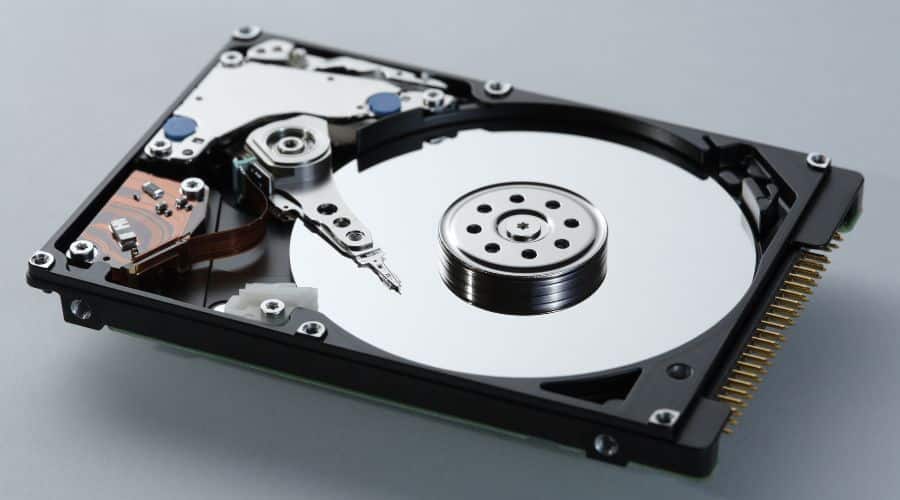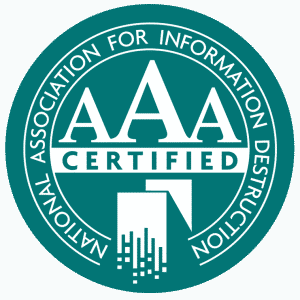Why Legal Professionals Choose
CI Information Management For Shredding

In the legal industry, protecting sensitive client information is essential—not only to maintain confidentiality and uphold professional ethics, but also to comply with strict regulations. Law firms, legal departments, and solo practitioners manage large volumes of confidential documents, including client case files, legal correspondence, contracts, and court records. Properly managing and securely disposing of this information is not just good practice—it’s a legal and ethical obligation.
The Importance of Secure Document Management in the Legal Sector
Legal professionals must adhere to strict privacy standards and regulations, such as the American Bar Association (ABA) Model Rules of Professional Conduct, HIPAA (for healthcare-related cases), and state-specific data protection laws. Secure document shredding plays a vital role in protecting privileged information, preventing unauthorized access, and reducing the risk of legal liability due to data breaches or identity theft.
One-time purge shredding is an ideal solution for law firms to securely and efficiently dispose of outdated legal documents, ensuring compliance with confidentiality requirements and protecting client privacy.
Benefits of Choosing Our One-Time Purge Shredding for Legal Offices
Confidentiality & Compliance:
Our shredding services meet the strict standards set by legal and ethical regulations, helping your firm maintain client-attorney privilege and comply with data protection laws.
Convenience & Efficiency:
We handle the entire shredding process—so your legal team can stay focused on casework and client service, without disruption.
Environmentally Responsible:
All shredded documents are securely recycled, supporting your firm’s commitment to sustainability while safeguarding sensitive information.


Our scheduled shredding service provides a dependable, recurring solution for law firms that manage a continuous stream of sensitive legal documents. We work with your practice to design a shredding schedule that fits your needs—whether weekly, monthly, or quarterly—ensuring confidential client records, case files, and legal documents are securely destroyed on a regular basis.
With secure, locked collection containers placed conveniently in your office, your documents remain protected until their scheduled destruction—safeguarding privileged information and ensuring compliance with legal and ethical standards.
Protecting sensitive information extends beyond case files and printed documents. Law firms store vast amounts of confidential client data on hard drives and digital media. When these devices are no longer needed, it’s essential to destroy them securely to eliminate any risk of data recovery. CI Information Management offers certified hard drive destruction services tailored to the legal sector, ensuring compliance with strict data protection regulations. We physically destroy hard drives, giving you peace of mind that client and firm data remains secure.

Ready to trust
CI Information Management
with the secure destruction
of your sensitive data?
Benefits of Document Shredding
Experience in the Financial Services
We understand the unique challenges law firms face in managing sensitive information securely.
Convenience and Security
With flexible on-site and off-site options, we ensure your documents and data are handled securely and efficiently.
Compliance Guaranteed
Our protocols are carefully crafted to meet industry standards and comply with all relevant privacy laws, providing our clients with the utmost security and trust.
The Law Requires You to Protect Legal Confidential Information
Law firms and legal service providers rely on their reputation and commitment to confidentiality. Clients—whether individuals, corporations, or government entities—expect legal counsel to uphold the highest standards of privacy and information security. Our secure shredding service is the ideal solution for legal practices that prioritize the protection of sensitive case files, client records, and privileged communications. By partnering with CI Information Management, your firm demonstrates a proactive commitment to maintaining trust, complying with regulations, and safeguarding every piece of confidential information.
✅ American Bar Association (ABA) Model Rules & Data Privacy Laws
Requires attorneys to maintain client confidentiality and take reasonable steps to safeguard sensitive information.
Encourages firms to implement secure procedures for storing and disposing of client records.
- How Shredding Helps: Professional shredding ensures that outdated legal documents are destroyed securely, preventing unauthorized access and helping your firm stay compliant with ethical obligations and privacy regulations.
✅ HIPAA (Health Insurance Portability and Accountability Act)
HIPAA requires law firms handling healthcare-related cases to safeguard client health information, including medical records, billing details, and any other personally identifiable health information (PHI). Compliance with HIPAA is essential for firms representing clients in healthcare or those working with medical records.
Mandates that all confidential health information is properly protected
Imposes penalties for unauthorized access or improper disposal of PHI
- How Shredding Helps: Proper document destruction through secure shredding ensures that all PHI is completely destroyed, preventing unauthorized access and ensuring compliance with HIPAA. Whether it’s paper documents or electronic media, our services help law firms meet their HIPAA obligations and maintain client trust.
✅ FERPA (Family Educational Rights and Privacy Act)
FERPA is a federal law that protects the privacy of student education records. While primarily aimed at schools, law firms working with educational institutions, school districts, or handling student-related cases must also ensure compliance with FERPA.
Requires the protection of student education records
Grants parents and eligible students the right to access and control their educational records
Mandates that records are not disclosed without appropriate consent
- How Shredding Helps: Law firms handling student records or educational data must ensure that confidential information is disposed of securely when no longer needed. Secure shredding prevents unauthorized access to sensitive student data and ensures FERPA compliance, protecting both the firm and the individuals whose data you handle.

What Documents Should Be Shredded?
Law firms and legal organizations handle a variety of sensitive documents that must be securely disposed of to protect the confidentiality of clients, employees, and the firm itself. Mishandling these records can lead to data breaches, legal consequences, and severe reputational damage. Here’s a list of what should be shredded in the legal sector.
Case Files
Client Contracts and Agreements
Retainer Agreements
Emails and Internal Memos
Tax Records and Documents
Employment Contracts
Testamentary Documents
Research Notes
Draft Legal Documents

Secure and Reliable Shredding Services
Data breaches can result in costly fines, litigation, and irreparable damage to your company’s reputation. As a NAID AAA Certified destruction provider, we help you mitigate the risks of unauthorized access to your information. Our trained, background-checked, bonded, and insured employees follow a strict chain of custody during the entire destruction process. Each destruction operation is accompanied by a Certificate of Destruction, ensuring compliance with state and federal privacy laws such as HIPAA, FACTA, SOX, and GLB.
By partnering with us, you receive a media destruction solution that meets the shredding industry’s highest ethical and security standards. Let us help you protect yourself and your business from the disastrous consequences of identity theft and information-based fraud.
